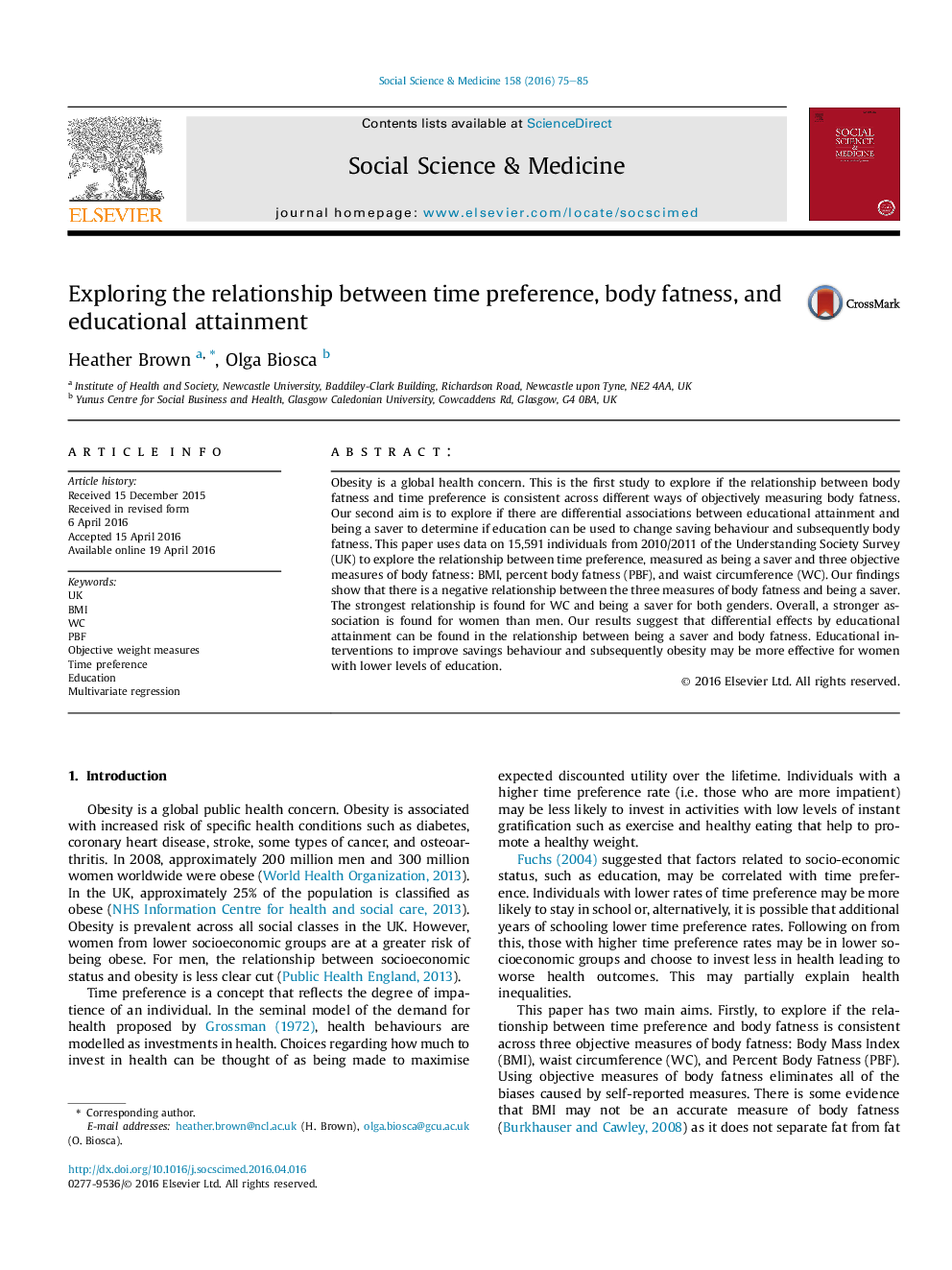| Article ID | Journal | Published Year | Pages | File Type |
|---|---|---|---|---|
| 7330119 | Social Science & Medicine | 2016 | 11 Pages |
Abstract
Obesity is a global health concern. This is the first study to explore if the relationship between body fatness and time preference is consistent across different ways of objectively measuring body fatness. Our second aim is to explore if there are differential associations between educational attainment and being a saver to determine if education can be used to change saving behaviour and subsequently body fatness. This paper uses data on 15,591 individuals from 2010/2011 of the Understanding Society Survey (UK) to explore the relationship between time preference, measured as being a saver and three objective measures of body fatness: BMI, percent body fatness (PBF), and waist circumference (WC). Our findings show that there is a negative relationship between the three measures of body fatness and being a saver. The strongest relationship is found for WC and being a saver for both genders. Overall, a stronger association is found for women than men. Our results suggest that differential effects by educational attainment can be found in the relationship between being a saver and body fatness. Educational interventions to improve savings behaviour and subsequently obesity may be more effective for women with lower levels of education.
Related Topics
Health Sciences
Medicine and Dentistry
Public Health and Health Policy
Authors
Heather Brown, Olga Biosca,
